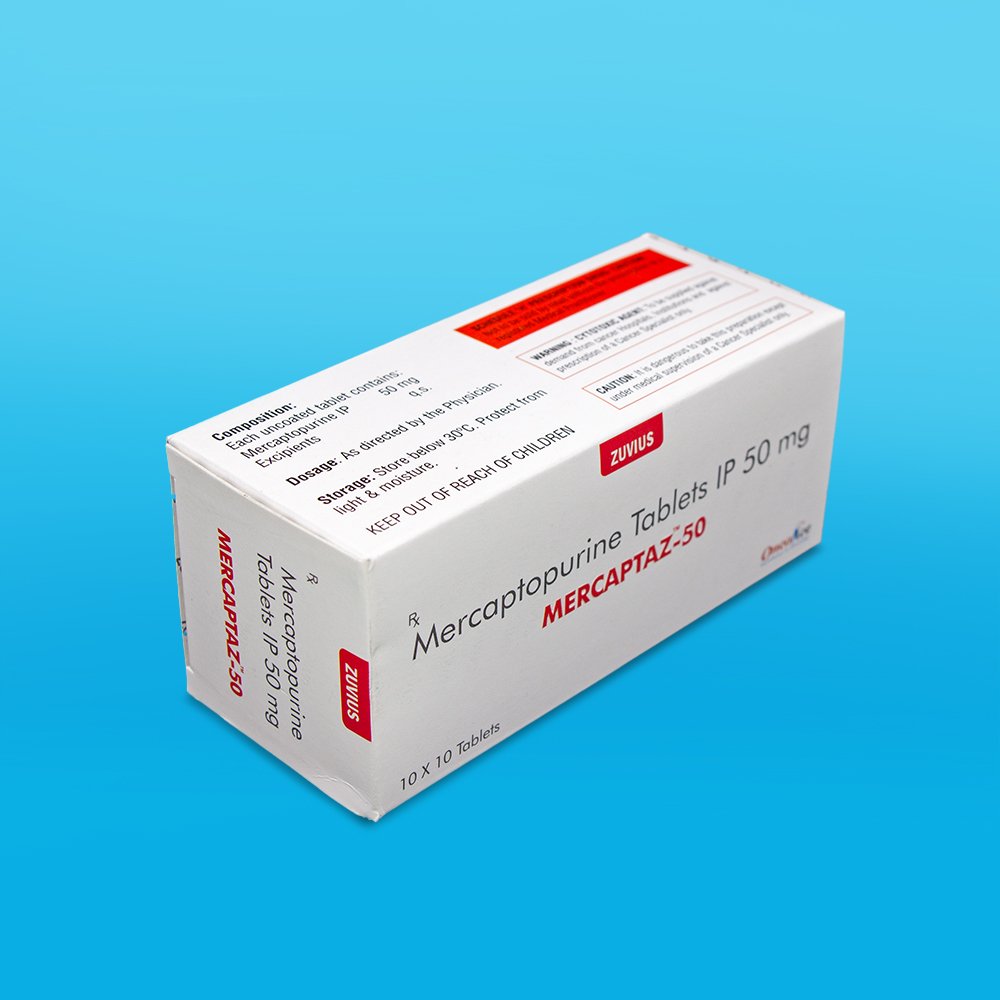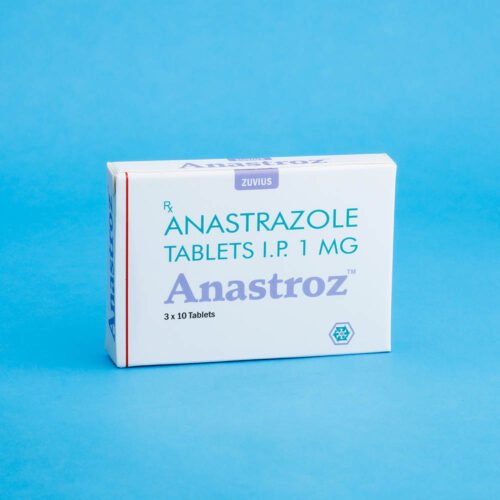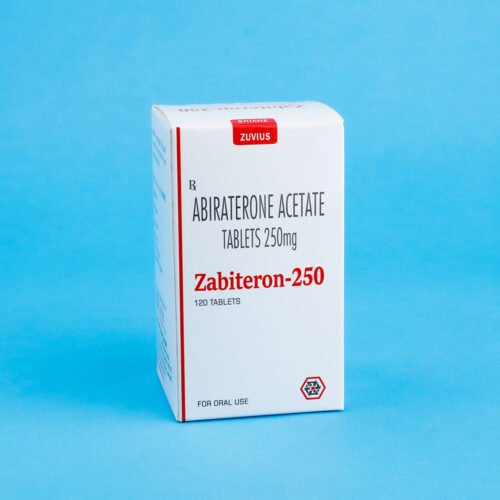Mercaptaz -50- Mercaptopurine 50 mg
Mercaptopurine Tablets IP
Strength: 50 MG
Pack Size: 1 x 10
Drug Class: Purine Antagonists
Dosage and Administration:
For adults and children the usual dose is 2.5 mg/kg bodyweight per day, or 50 to 75 mg/m 2 body
surface area per day, but the dose and duration of administration depend on the nature and dosage of
other cytotoxic agents given in conjunction with 6-mercaptopurine.
Cold Storage: no
It is a medication used for cancer and autoimmune diseases. Specifically it is used to treat
acute lymphocytic leukemia, acute promyelocytic leukemia, Crohn’s disease, and ulcerative
colitis.
6-mercaptopurine is indicated for the treatment of acute leukaemia in adults, adolescents
and children.
It may be utilised in:
Acute lymphoblastic leukaemia (ALL)
Acute promyelocytic leukaemia (APL)/Acute myeloid leukaemia M3 (AML M3)
6-Mercaptopurine (6-MP) has confirmed short and long term efficacy in the treatment of IBD.
However, the relation between its metabolism, efficacy, and side effects is not well
understood. To assay 6-MP metabolites and to correlate levels with drug compliance, disease
activity, and adverse effects of treatment.
6-mercaptopurine, has been shown to produce good clinical and hematologic remissions in
fifteen out of forty-five children with acute leukemia. Another ten showed partial remissions
and clinical improvement.
-Genotoxicity
6-mercaptopurine, in common with other antimetabolites, is mutagenic and causes chromosomal
aberrations in vitro and in vivo in mice and rats.
-Carcinogenicity
Given its genotoxic potential, 6-mercaptopurine is potentially carcinogenic.
-Teratogenicity
6-mercaptopurine causes embryo lethality and severe teratogenic effects in the mouse, rat,
hamster and rabbit at doses that are non-toxic to the mother. In all species, the degree of
embryotoxicity and the type of malformations are dependent on the dose and stage of the
gestation at the time of administration
It is recommended that 6-mercaptopurine tablets should be handled following the
prevailing local recommendations and/or regulations for the handling and disposal of
cytotoxic agents.
Mercaptopurine contact with skin or mucous membrane must be avoided
Women who are pregnant, planning to be or breast-feeding should not handle
Mercaptopurine.









